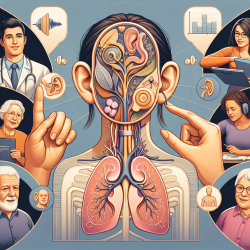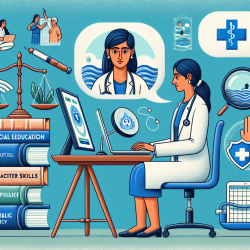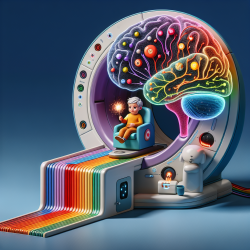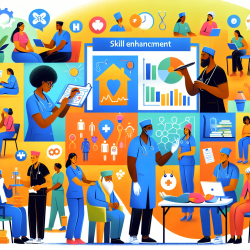Hearing loss is a prevalent issue among adults with developmental disabilities (DD), significantly impacting their communication abilities and overall quality of life. A comprehensive study by Lowe and Temple (2002) sheds light on the critical need for regular audiological assessments and tailored interventions for this population. As practitioners, especially those involved in speech therapy in schools and other educational settings, understanding and applying the insights from this research can greatly enhance our practice and the support we provide to individuals with DD.
The Prevalence and Impact of Hearing Loss
The study in question investigated hearing disorders in 126 adults with developmental disabilities, revealing a striking 66% prevalence rate of hearing impairment among the participants. Notably, individuals with Down syndrome exhibited a higher incidence of hearing deficits compared to those with unspecified developmental disabilities. This significant finding underscores the necessity for regular and thorough audiological assessments, particularly as these individuals age.
Hearing loss in adults with DD not only affects their ability to communicate but also has profound implications for their social interactions, emotional well-being, and capacity to learn and work. In educational settings, undiagnosed or unaddressed hearing issues can hinder the effectiveness of speech therapy and other interventions outlined in Individualized Education Programs (IEPs).
Implementing Research Outcomes in Practice
As practitioners, we can draw valuable lessons from this research to improve our skills and the services we provide:
- Advocate for Regular Audiological Assessments: Encourage regular hearing screenings for adults with DD, especially those over 40 years of age and individuals with Down syndrome, who are at a higher risk of hearing impairment.
- Integrate Findings into IEPs: For practitioners working in schools, integrate the outcomes of audiological assessments into the students' IEPs. Tailor speech therapy and other educational interventions to accommodate and address the hearing needs of students with DD.
- Employ Assistive Technologies: Explore and utilize assistive listening devices and technologies that can enhance communication for individuals with hearing loss. This is particularly relevant for online therapy services, where audio quality and clarity are paramount.
- Promote Multidisciplinary Collaboration: Collaborate with audiologists, special educators, and other professionals to develop comprehensive support plans that address both the hearing and developmental needs of individuals with DD.
- Encourage Further Research: Advocate for ongoing research into the audiological needs of adults with DD. Continuous learning and adaptation of new findings into practice are essential for providing the best possible support.
Case Example: The Role of Audiological Assessment and Intervention
The research includes a compelling case example that illustrates the transformative impact of audiological intervention. A 26-year-old woman with DD, initially referred for various socio-emotional and medical concerns, showed marked improvements in social skills, confidence, and verbal responsiveness after being fitted with hearing aids. This case highlights the critical role of audiological assessment and intervention in enhancing the quality of life for adults with DD.
Conclusion
The findings from Lowe and Temple's research emphasize the importance of regular audiological assessments and tailored interventions for adults with developmental disabilities. As practitioners, especially those involved in speech therapy in schools, integrating these insights into our practice can significantly improve the educational and therapeutic outcomes for individuals with DD. By advocating for regular hearing screenings, incorporating audiological findings into IEPs, and employing assistive technologies, we can make a meaningful difference in the lives of those we serve.
For practitioners keen on improving their skills and understanding in this area, further exploration of the original research is highly recommended. To read the original research paper, please follow this link: Identifying Hearing Loss in Adults with Developmental Disabilities.
Ultimately, our goal as educators and therapists is to ensure that individuals with developmental disabilities receive the comprehensive support they need to thrive. By focusing on the auditory health of our clients and students, we take a significant step toward achieving this goal.










